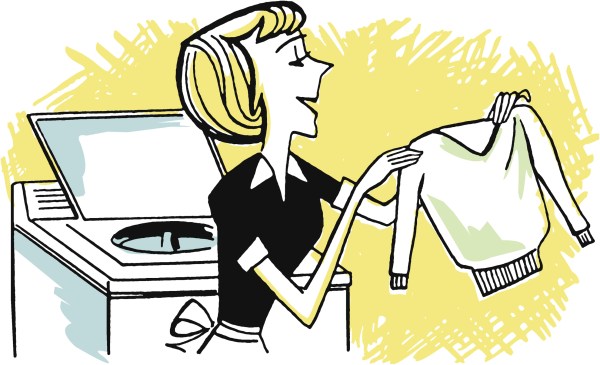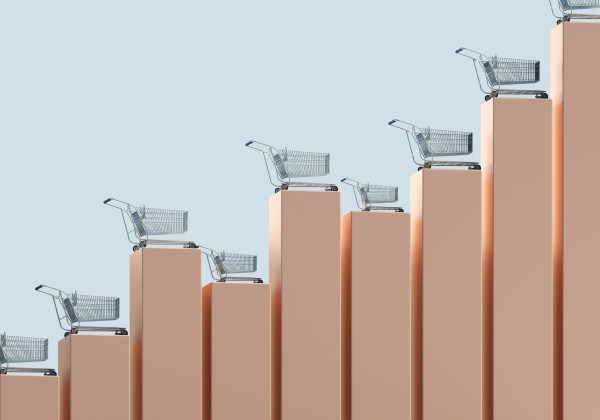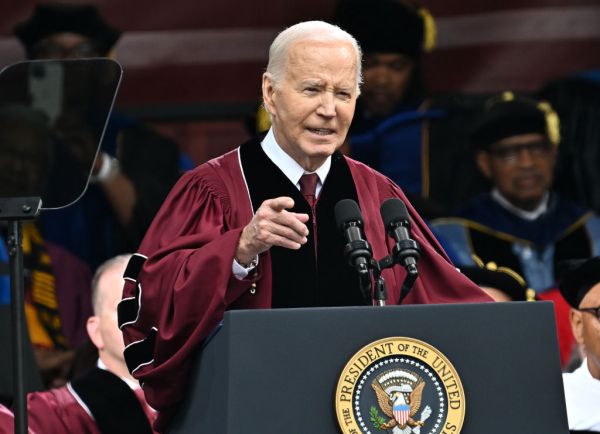Happy Tuesday! If you’re part of the 60 percent of Americans who do not want to discuss politics at Thanksgiving this year, try steering the conversation towards a more popular topic. May we (and official NBC News polling) suggest Taylor Swift or Beyoncé?
Quick Hits: Today’s Top Stories
- While on a previously unannounced visit to Kyiv on Monday, Defense Secretary Lloyd Austin announced $100 million in additional military aid to Ukraine through the Presidential Drawdown Authority. The U.S. will transfer from its own stockpile Stinger anti-aircraft missiles, one additional High Mobility Artillery Rocket System (HIMARS) and corresponding ammunition, supplemental 155mm and 105mm artillery rounds, as well as other materiel. Austin also pledged continued American support during his visit. “The message that I bring you today, Mr. President, is that the United States of America is with you,” he told Ukrainian President Volodymyr Zelensky. “We will remain with you for the long haul.”
- The Supreme Court on Monday declined to hear an appeal from former Minneapolis police officer Derek Chauvin, who in April 2021 was found guilty of murder in the 2020 death of George Floyd. Chauvin appealed on the grounds his jurors had a vested interest in voting against acquittal, for fear of inciting protests and violence; the Court, as is standard practice, denied this appeal without giving a reason.
- Virginia Del. Briana Sewell, a Democrat, announced Monday she will run for Congress to replace Democratic Rep. Abigail Spanberger, who announced earlier this month she will run for governor instead of reelection. Sewell joined Yevgeny “Eugene” Vindman—a retired Army colonel who, along with his twin brother, raised the alarm about former President Donald Trump’s conduct regarding Ukraine—in the Democratic primary for the seat.
Talking Turkey on the Economy

One thing to be thankful for this Thanksgiving is falling prices: Foodstuff prices, in particular—including for festive staples like turkeys, eggs, whipped cream, and cranberries—are down. According to the American Farm Bureau Federation’s 38th annual survey, the average cost of a 2023* Thanksgiving dinner for 10 is $61.17, down 4.5 percent from last year’s record high. It’s also cheaper to travel to see family this week as gas prices are near their lowest point since January, and airfares are back below pre-pandemic levels.
But despite lower prices and economic forecasts predicting resilient growth into 2024, most Americans’ views of the economy remain dour. Some have even claimed the economy is in a “silent depression” or, as the kids are saying, a “vibecession.” What explains the disconnect?
At the beginning of the year, many economists and financial analysts rushed to publish their predictions of an impending recession just a fiscal quarter or two away. A December 2022 Bloomberg survey found that economists believed there was a 70 percent chance a recession would hit sometime in 2023, and the median projection for annual gross domestic product (GDP) growth was 0.3 percent. In the Wall Street Journal’s (WSJ) April Economic Forecasting Survey, economists pegged the chance of recession within the next 12 months at 61 percent.
Yet the economy hummed along, greatly exceeding expectations with strong growth as inflation continued to ease. GDP grew at an annualized rate of 4.9 percent in the third quarter, blowing away economists’ summertime predictions of a measly 0.6 percent growth rate in Q3. Inflation has steadily ticked down, and the markets are virtually certain the Federal Reserve won’t need to hike interest rates further at its December meeting. After lagging behind for nearly two years, wage growth has been outpacing inflation since February 2023, and the unemployment rate remains at 3.9 percent—near historic lows. Economists are now much more circumspect about the likelihood of a recession in 2024. The October WSJ forecast predicted a 48 percent chance of recession within the next year, and Bloomberg’s survey last month put the chances at about even.
“Most people’s forecasts are now for positive growth in 2024, and positive growth that’s strong enough that we don’t have more than our normal risk of a recession,” Betsey Stevenson, a University of Michigan economics professor and the former chief economist at the Labor Department, told TMD. “We are seeing some signs of a slowing economy. Not slowing into recession, but perhaps slowing towards that soft landing.” Goldman Sachs, an often bullish oracle, projected earlier this month that GDP will grow 2.1 percent next year.
Officials have begun cautiously suggesting over the last few months that a soft landing—in which inflation returns to normal levels without a major spike in unemployment or a recession—could be achieved. Austan Goolsbee, the president of the Federal Reserve Bank of Chicago, signaled Monday that the economy seems to be on the “golden path” toward a soft landing but also noted, “I haven’t moved so far as to say that that’s what my prediction is.”
Despite these positive signs, Americans’ unhappiness about the economy is at recession-era levels. The University of Michigan’s index of consumer sentiment is a monthly survey that captures how people feel about both their own finances and the broader economy, with higher values on the survey representing positive feelings about the economy and lower values indicating negative ones. Preliminary results for November placed consumer sentiment in October at 60.4 on the index—compared to 57.6 in October 2008, during the financial crisis, and 101 in February 2020 before the pandemic shutdowns, a 15-year high. A recent New York Times-Siena College battleground state poll echoed this sentiment, with 52 percent of registered voters describing economic conditions as “poor” and 29 percent describing conditions as “only fair.” Just 19 percent saw the economy as good or excellent. A separate Financial Times-University of Michigan poll released last week found that only 14 percent of registered voters believe they are financially better off now than when President Joe Biden took office, and 82 percent cited price increases as their biggest source of financial stress.
Americans are clearly frustrated with rising costs, and consumer expectations for inflation in the coming years have risen even as the metric has cooled this fall. While the rate of price growth has decreased, the prices for many goods and services have remained at elevated levels. But that frustration isn’t reflected in spending habits. “Consumers have continued to spend at record rates,” Stevenson said. “Consumption spending has been off the charts. Despite the fact that consumers tell us that they’re worried about a recession and they are unhappy with the economy, they’re spending as if they think this is the strongest economy they’ve seen in a quarter of a century.” Robust consumer spending has been the single biggest factor driving GDP growth.
Some economists (including Stevenson) have argued the disparity between consumer sentiment and behavior reflect not only people’s bias against inflation (even when their incomes improve), but also more general anger about how the economy functions and a sense that the system is “rigged.” Greg Ip, the WSJ’s chief economics commentator, contended that “pessimism about the economy may reflect dissatisfaction with the country as a whole,” and data has suggested that partisanship’s effect on economic sentiment (e.g., a gloomier outlook when the other team is in charge) is more strongly felt among Republicans than Democrats. Recent polling on “Bidenomics,” however, shows that Biden’s economic plans have fallen flat with Americans across the political spectrum.
Regardless, Americans continue their spending spree—but elevated consumer spending might not reflect gains in real wages so much as it does the final drawing down of pandemic savings and stimulus. “For a while, people were much, much better off because they received all these transfers from the government,” Stephen Miran, an adjunct fellow at the Manhattan Institute and former Treasury Department policy adviser, told TMD. “They’re now exposed to the lower real wages without as much of the transfers and savings.” Miran said real wages have not actually kept pace with inflation and the savings cushion is largely used up, but there’s still debate over how much excess savings people have left. “Consumption can stay above income for a while,” he said, “but ultimately the two have to rejoin.”
Whether the economy experiences a soft or hard landing could depend on the rate of decline in consumer spending over the coming months. “Headwinds such as depleted savings, tightening credit conditions, slowing income growth and return of student debt payments will weigh more appreciably over the next year,” Brett Ryan and Matthew Luzzetti, economists at Deutsche Bank, said last month. Retail sales fell slightly in October, marking the first monthly decrease since March as big retailers like Walmart expressed caution in their earnings outlooks. “We are starting to see some stress in the consumer,” Brendan Walsh, the principal at the financial analysis firm Markets Policy Partners, told TMD. Hiring has also slowed—the economy added 150,000 jobs in October, only half the number added in September.
In order to stick to a soft landing, the labor market will likely need to loosen further and growth must edge down. “We want the economy to slow,” Stevenson said. “But we want it to slow in a Goldilocks way, just the right amount.”
Worth Your Time
- What is Generation Z doing all day? In a guest post on social psychologist Jonathan Haidt’s substack, After Babel, self-identified “Zoomer” Rikki Schlott told the story. “People often ask me to explain their kids to them,” she wrote. “They are baffled by the children that they raised and yet somehow do not know. It sounds impossible and yet makes sense—considering that the hours their kids spent under the same roof were also spent in a maze of digital crevices. These are strangers in their own home. Parents ask me: Why are my kids so anxious and depressed? Where do they go all day on their devices? How can I get them back? If you’re a parent wondering the same, I hope I can be an intermediary for you. Gen Z has inherited a post-hope world, stripped of what matters. Instead, we have been offered a smorgasbord of easy and unsatisfying substitutes. All the things that have traditionally made life worth living—love, community, country, faith, work, and family—have been ‘debunked.’ Sentiments I hear often from peers: Love—‘Monogamy is so outdated.’ Community—‘I have enough friends online.’ Country—‘I’m embarrassed to be an American.’ Work—‘I’m quiet-quitting.’ Family—‘I’m not bringing kids into this melting world.’ Faith—‘My parents are such naive Bible thumpers. By the way, what’s your star sign?’ Of course there are well-adjusted teens in spite of the forces working against them, but the overall figures are bleak. In fact, nearly half of teens agree with statements like ‘my life is not useful,’ ‘I do not enjoy life,’ and ‘I can’t do anything right.’ Back in 2010, fewer than 30 percent of teens agreed with those statements. Something is clearly wrong. Gen Z is quietly begging for help.”
Presented Without Comment
NBC News: X Sues Media Matters Over Report About Ads Appearing Next to Nazi Posts
Also Presented Without Comment
Billboard: Joe Biden Confuses Taylor Swift With Britney Spears During Turkey Pardoning Speech
Toeing the Company Line
- It’s Tuesday, which means Dispatch Live (🔒) returns tonight at 8 p.m. ET/5 p.m. PT! The team will discuss the news of the week and, of course, take plenty of viewer questions! Keep an eye out for an email later today with information on how to tune in.
- In the newsletters: Kevin argued (🔒) the operative Israeli virtue in this moment should not be restraint so much as diligence, the Dispatch Politics crew previewed next year’s race for control of the Senate, and Nick broke down (🔒) the radicalization of Sen. Mike Lee.
- On the podcasts: Sarah and David discuss a First Amendment case involving risqué drag shows at a burger joint, hunter harassment laws, and challenges to Donald Trump’s ballot access.
- On the site today: Daniel Cox highlights a new study on Gen Z’s formative experiences, Stirewalt debates whether Biden will still be suffering politically for his pro-Israel stance as we get closer to the election, and Aaron MacLean and Gabriel Scheinmann argue the U.S. can aid both Israel and Ukraine at the same time—at least in the short term.
Let Us Know
Do you feel better off financially this Thanksgiving than you did last year?
Correction, November 21, 2023: The American Farm Bureau Federation’s 38th annual survey refers to the average cost of a 2023 Thanksgiving dinner, not 2024.









